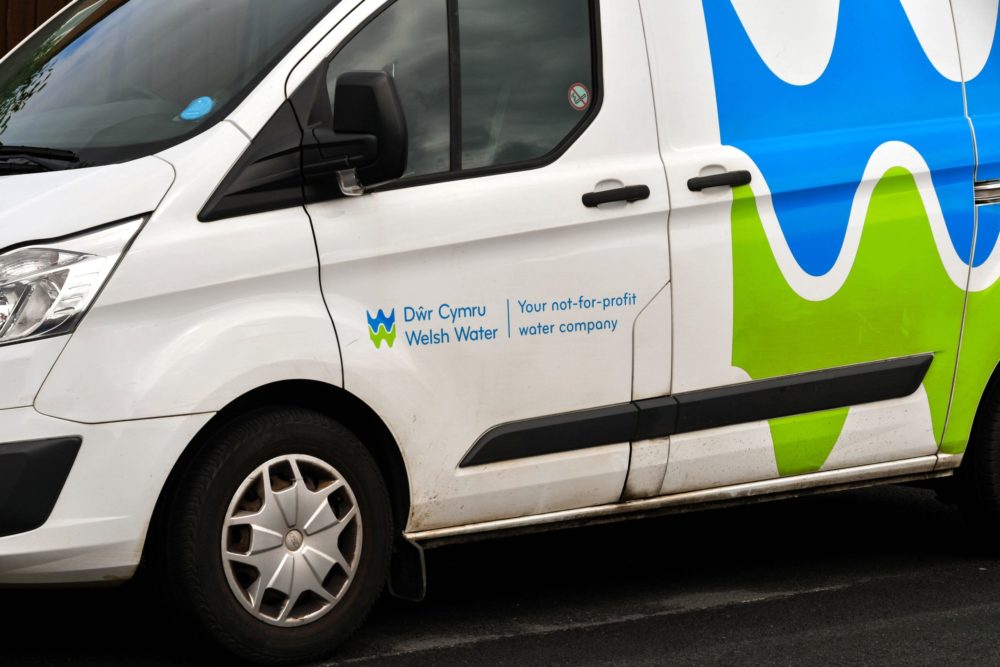Dŵr Cymru boss claims ‘good progress’ despite 20% surge in pollution incidents

Wales’ largest water company saw a rise in sewage pollution, flooded sewers and leakage last year, despite spending hundreds of millions of pounds on improving its infrastructure.
Dŵr Cymru Welsh Water, which serves three million people in Wales, Herefordshire and parts of Deeside, recorded 107 pollution incidents in the last financial year, up on 89 the year before, a 20% rise.
Like many water firms, Dŵr Cymru has been mired in controversy in recent months, amid an industry-wide scandal over dire performance on leaks, raw sewage spills and poor customer service.
Downgrade
The company was already downgraded for the second year running in 2023 as a result of the 89 sewage pollution incidents, five of which were classed as “having a high or significant impact”.
Natural Resources Wales reduced the company’s rating of three stars to two stars in June 2023, meaning it “requires improvement”.
Dŵr Cymru did not say how many of the 107 pollution incidents recorded this year were serious.
Alastair Lyons, chairman of Dŵr Cymru, said: “Our plans have to find the right balance of being financeable, deliverable and affordable for our customers without storing up problems for future generations.
“Whilst there’s still much more to do, we are making good progress against the commitments we’ve made.”
The company said it invested £483 million last year to “improve services to its customers and communities and to protect the environment”, up on £400 million the year before.
Despite this, it also reported 201 sewer flooding incidents, up on 169 the year before, while leakage rose to 251.7 megalitres per day, up from 242.1 megalitres per day.
Dŵr Cymru was ordered to pay nearly £40 million to customers in May after the industry watchdog found the firm misled them over its record of tackling leaks and saving water.
“Failure of governance”
Ofwat said an investigation that started in May last year found evidence of a “significant failure of governance and management oversight” at Dŵr Cymru led the firm to misreport leaks and performance over a period of five years.
Dŵr Cymru said this morning that it has agreed 145 new environmental permits with NRW to remove more phosphorus from its treated water before it is put back into rivers.
It comes after a hotly anticipated review of how expensive water bills could be over the coming years was pushed back because of the General Election.
Regulator Ofwat pushed back the date for its consultation on draft pricing decisions for the sector until July 11. The announcement had originally been pencilled in for June 12.
The consultation will see Ofwat give its initial verdict on water companies’ business plans until the end of the decade, which it does every five years.
Peter Perry, Dŵr Cymru chief executive, added: “We are prioritising investment in the storm overflows that cause environmental harm rather than those which spill the most.”
Support our Nation today
For the price of a cup of coffee a month you can help us create an independent, not-for-profit, national news service for the people of Wales, by the people of Wales.







That’s what he will expect now a 20% rise in salary.
Their main board operates like a daisy chain of mutual backscratching. Pay rises and soft incentive schemes are voted in without much trouble as there is no accountability to shareholders or any other stakeholders. A Board of Customers would probably fire the lot of them !
As the pollution rises does the remuneration of directors and executives fall? If it did it might concentrate their minds to deal with the problem(s).
Scrutiny would bring them all out in a nasty rash pleading poverty.
“….recorded 107 pollution incidents in the last financial year, up on 89 the year before, a 20% rise.” Recorded, what about the unrecorded. Parts of our coast is almost continuously tainted with human waste either overflows or damaged pipes.